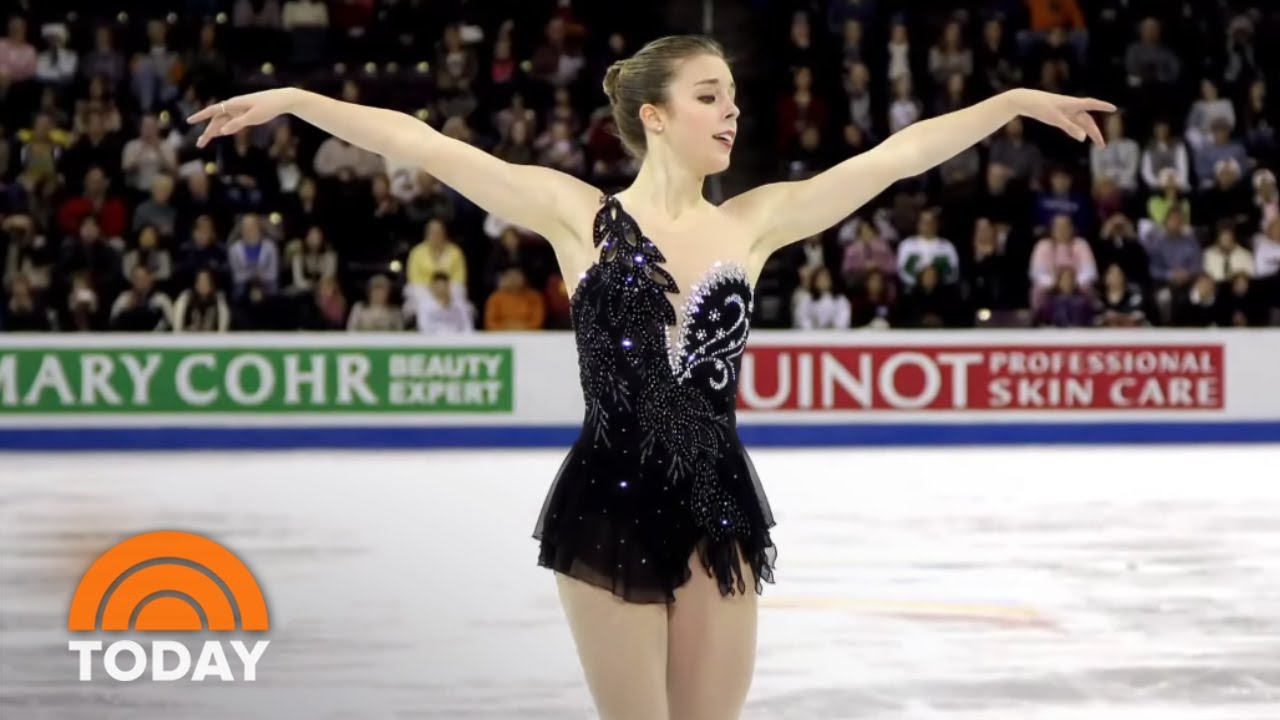Your seem to be referring to our own culpability in the sense that we don't question whether skaters have eating disorders, or something like that. First of all, that is an entirely different thing than engaging in an illegal, harmful actual such as sexual assault.
Second, I don't know the skater in question, but would be very surprised if people on this board didn't ask questions about her possibly having an ED on this board. It's a discussion we have fairly often, most recently with a focus on Gold and Daleman.
Yeah, your take is your take. Everyone's emotions are high surounding this tragedy. If you don't understand the larger implications of what I'm expressing, there's no point to engage in a holier-than-thou, one-upmanship match. You perceive what I have expressed in the light you are perceiving it.
The eating disorder is a separate situation that also existed, and I spoke about it in reference to the video I linked. That's a broader implication of a problem that clearly should have been looked at more closely by the people around Bridget in order to ensure her long term health. It seems to me that the fact she had pancreatitis which can lead to weight loss, that unfortunately assumptions were made without examining things too closely. Me saying that we were all complicit back then is simply referencing the cultural norm of that time of ignoring or not recognizing signs that something is not quite right when seeing someone that thin. In hindsight, the question I ask is whether or not no one around Bridget wanted to truly see that it wasn't just pancreatitis. Sadly, the pancreatitis seems to have become a convenient public excuse for why she was so abnormally thin.
The fact that it was surely known that John and Bridget were 'dating' is another part of what was going on in their partnership. Part of the cultural norm in figure skating among fans is to 'ship' two skating partners. Plus, pairs skaters perform to romantic themes generally, even at a young age. So what are the broader implications of that, particularly regarding underage skaters? It's a question to ask ourselves. Sadly, no one around John and Bridget apparently stopped to question their age difference at that time in terms of them 'dating.' The other sad thing is as we know Bridget felt coerced and abused. If she couldn't voice it to herself at the time due to her age and naive perceptions, it certainly did not feel right, and thus she suffered with it for a long time, as it became more and more horribly apparent to her. Or, if she began to realize at the time or shortly thereafter that she was experiencing abuse, and she revealed it to someone in authority and was ignored or put down, that must have been a further trauma.
As far as complicity, again it would be the complicity of the cultural norm of two young people dating despite a four-year-age gap, and Bridget being under age when John turned 18. But it was considered okay then and it was condoned because apparently no one objected to it at the time, or took John aside and advised him to not date underage girls and/or underage female skating partners.
Let's also not forget that figure skating is an insular world in which John as a male, and further as a straight male figure skater, was doubly valued and thus he received precedence over "a sea of female teenagers..." Something was clearly awry with his thinking and with his behavior. But it went either unnoticed or the extent of his misdeeds was not fully known. Still, he could have seen his behavior as okay if he was continually privileged, looked up to, prized, and got his own way without anyone ever making it clear he should not be dating, and certainly not 'grooming' underage females.
The issue of eating disorders, and the issue of sexual abuse and sexual misconduct in all parts of our culture is something that is now being brought front and center as it should be, and so there is now much more awareness. But we are still in the throes of cultural change and serious reckoning. There needs to be further education across-the-board and open communication about these issues, again without blaming and shaming and becoming overly offended. These are difficult issues to discuss. But this terrible tragedy that hits so close to home, I think, should cause us all to look within and to examine our own lives. I feel fortunate to have dodged some bullets, but I have, as all humans have, experienced unpleasant human interactions that are painful. Anyone who has been lucky enough to have never experienced a painful human interaction or betrayal or violation of one sort or another, then surely you know someone close to you who has. What do we do with what happens to us? That's another question.
You don't know that. There are plenty of reasons why a skater could feel stuck at the rink. The skater might have a strong bond with the coach, even though the bond may not be healthy. The conditions that characterize working with the coach might be ideal (e.g. location, cost, ice time, presence of other skaters). And the parents may favor the coach for some reason.
Also, if things aren't good, the skater might not feel empowered to talk about them.
Also, a coach is an authority figure and has power over the skater to a certain extent. So a skater may try to justify the relationship with that coach, even if some things about it see wrong.
Yeah, I don't know. That's why I qualified my comment with 'surely under the present circumstances...' Meaning I hope that anyone who feels threatened or uncomfortable or pressured and unhappy, will speak to someone they trust. If young people don't speak out, then surely their parents are sensitive enough and cognizant enough at this juncture to sit down and talk to their children about how they are feeling. Anyone who isn't happy for whatever reason should not stay in an uncomfortable training situation. It won't benefit them in the short term or in the long term. Plus, it is very important for us all to take personal responsibility, and to stop making excuses.
When someone is being sexually victimized, of course that's a terrible situation that is violating, emotionally damaging and confusing for minors. But with more awareness, hopefully victims can begin to trust speaking out, and to recognize that they do not have to continue putting up with abuse. However, I'm not going to make the assumption that there is currently someone experiencing sexual abuse at Sappenfield's rink. If there is, I would urge them to seek help immediately. That's what this expanding cultural awareness of the need for change is all about. And let's face it, there's just as much likelihood that students are fine with the training and environment at Sappenfield's rink. Once again, if that's not the case, something needs to change.







